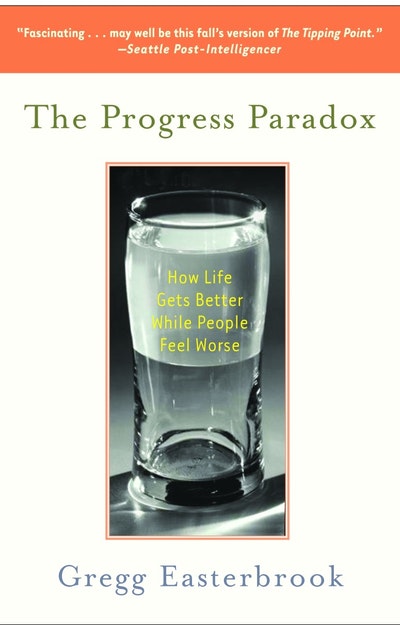[]
- Published: 15 December 2004
- ISBN: 9780812973037
- Imprint: Random House US Group
- Format: Paperback
- Pages: 400
- RRP: $45.00
The Progress Paradox
How Life Gets Better While People Feel Worse
Formats & editions
Buy from…
- Published: 15 December 2004
- ISBN: 9780812973037
- Imprint: Random House US Group
- Format: Paperback
- Pages: 400
- RRP: $45.00
"A fascinating examination . . . May well be this fall's version of The Tipping Point."
--Seattle Post-Intelligencer
"filled with curious examples and illuminating insights. Although he has a mature grasp of the trade-offs that come with modern progress, Easterbrook is unafraid to rub our faces in our good fortune. We have much to be thankful for, and it is to his great credit that his own recitation of our blessings inspires some of the feelings of delight and gratitude that he rightly claims are missing from our lives"
--Commentary





